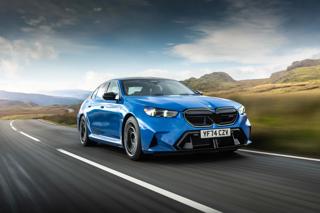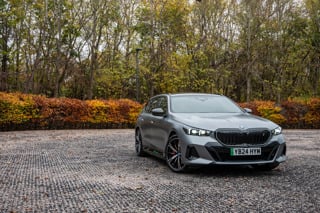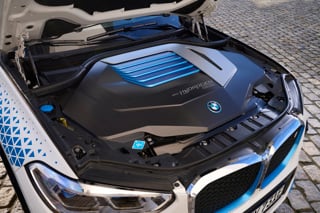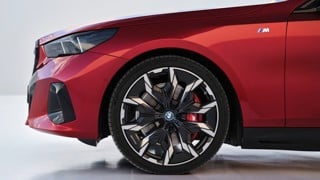Tim Lucas, MD (B2B and Transport) at Fleet News' parent company Bauer Media, has a BMW i3 on test this week. Here's day three, with a look at the maths.
The journey home last night started with a surprise. Although the i3 had been charging for 7.5 hours the battery was only at 80% when I got in the car at 17.30. This gave me a claimed range of 52/47 (electric/petrol) in Eco Pro. Time to test the Eco Pro+ mode that should extend my range by 20% or more.
And it was as good as it promised. I drove the first 60 miles on electric despite a reduced charge. The Eco Pro+ is miserly on power used for anything other than propulsion. No climate control, reduced internal lighting and a speed limit of 56 mph.
Sounds like a nightmare but I was wrapped up warm, the radio was on and the driving was completely straightforward. I’m not accustomed to HGVs overtaking me at 60mph but that, and the Arctic climate, were the only noticeable difference in performance and experience. In warmer seasons I expect I would be driving in Eco Pro+ as a matter of course.
Although the i3 limits you to 56mph in the Eco Pro+ mode more power is available instantly with increased pressure on the accelerator pedal. Once you have completed your manoeuvre, and drop to 56mph or below, the limiter kicks back in.
At the start of my journey the range was 52/47 (electric/petrol) and after 80 miles I had 4/34 left. This gave an actual range of 118 miles in the Eco Pro+ mode with an 80% charge and around 3.5 litres of fuel in the tank.
I’m interested in the efficiency of the i3 in comparison to my VV CC. In the VW I average around 55mpg for the 37,600 miles a year I travel to work and home. This uses 683 gallons of diesel fuel (3,105 litres) annually. At £1.30 for a litre of diesel this costs £4,036 per annum.
I’ve done 252 miles in the i3 with three charges of the battery and around 3.5 litres of fuel used. The average cost of a battery charge at home is around £1.70 depending on your supplier. This is based on a 9p per kWh tariff (18.8 kWh battery capacity) and could be lower if charged overnight.
So my first three journeys (252 miles) have been done at 327mpg for a total cost of £9.30 (using an unleaded petrol cost of £1.20 per litre). If I sustain this performance my annual fuel cost will drop to £1,390, saving me 66% of my original fuel costs (£2,646).



















Kevin Atkins - 10/12/2014 14:37
i would like to hear comment within the road test reports for the i3 about rear seat passengers exiting the vehicle when it is closly parked between two cars for example.